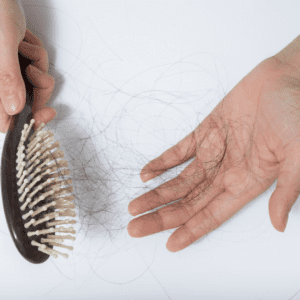Testosterone is a hormone that is found in both males and females. In males, it is made in the testicles, and in females, it is made in their ovaries in smaller quantities.
In males, there is a significant rise in the production of testosterone at puberty and this generally starts to drop after 30 years of age.
Testosterone plays an important role and plays many important functions in the human body.
Testosterone plays an important role in men. Its functions include:
- Sperm Production
- Development of bones and muscles
- Deepening of voice during puberty
- Hair growth
- Development of sex organ
- Sex Drive
Testosterone also plays an important role in women. Its functions include:
- Keeping Bones healthy
- Promotes cognitive health.
- Maintains sex drive
- Growth and maintenance of reproductive tissues
Here are 10 signs and symptoms that your testosterone levels might be low:
1) Difficulties in having or maintaining an erection.
- Low levels of testosterone may lead to difficulty getting or maintaining an erection, leading to a condition known as erectile dysfunction.

2) Hair loss
- Although hair loss is a natural part of aging, research has shown that lower levels of testosterone can also lead to hair loss.
3) Decrease in testicular size.
- If you notice a significant decrease in testicular size or your scrotum is feeling softer than usual that is not related to cooler temperatures, it may be due to lower testosterone levels.
4) Decreased amount of Semen
- Semen makes up the bulk of the fluid in male ejaculate. Semen is what helps the sperm travel to the egg for fertilization. Low levels of testosterone decrease semen production. This could result in infertility issues.
5) Insomnia
- Men with low testosterone may find it difficult to fall asleep or stay asleep.

6) Decreased Sex Drive
- Men who have low testosterone levels generally suffer from decreased libido (sex drive). Although, it is normal for your sex drive to go down with increased age, if you notice a significant desire for sex, it may be due to lower testosterone levels.
7) Decreased muscle mass
- Testosterone plays a significant role in muscle development. Low testosterone levels can lead to a significant loss of muscle mass.
8) Decreased Energy Levels
- Low t
- estosterone levels may lead to a significant decrease in energy levels and cause fatigue.
9) Weight gain
- Lower levels of testosterone cause an increase in body fat. Low levels of testosterone can also cause men to develop gynecomastia, which is a condition leading to enlarged breasts in men.
10) Depression or mood changes
- It is common to suffer from an inability to focus, irritability, or even depression if you have low levels of testosterone.
In order to see if you have low testosterone levels, please consult your healthcare professional to get your hormone levels checked.
For more info:
Contact our team of doctors, nurses, coaches, and nutritionists at
416-630-1712
or
647-352-3233.
